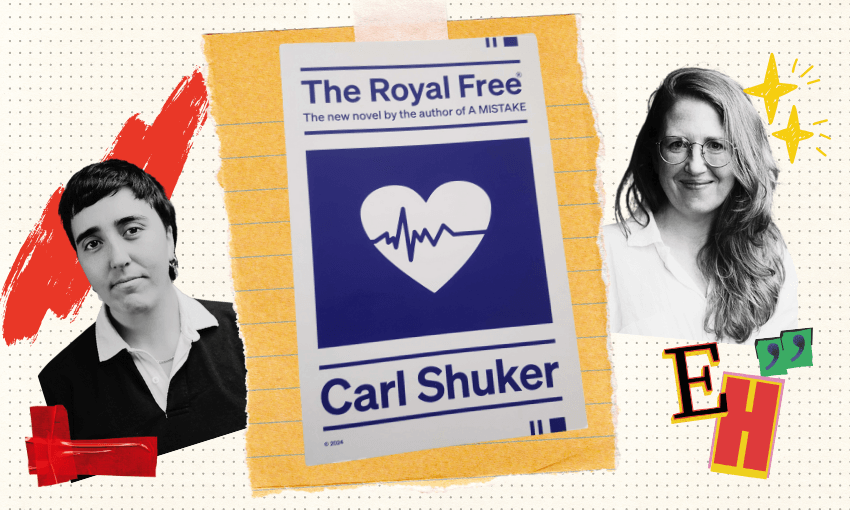‘Trauma’ is a word that seems to be on
everyone’s lips lately. What are people referring to, and
why is there so much of it? Can we heal ourselves of
trauma?
Colloquially, I think people
are referring to the emotional damage from the accumulation
of bad experiences, as opposed to the PTSD that soldiers and
victims of war experience. Although given the number of mass
shootings in America, and the panic a backfiring vehicle in
a crowd of people sets off, the country itself has become a
war zone.
Is trauma different from
the despair many people are feeling about the human
prospect, due to the woefully inadequate response to the
climate crisis, or in the USA, to the seemingly unstoppable
descent into
authoritarianism?
Despair and
depression are forms of trauma, though post-traumatic stress
disorder and the trauma that people are reporting refer to
injury to the heart and mind that’s more widespread and
less individualistic. To the extent trauma isn’t just the
word de jour, it refers to a lasting and pervasive emotional
and mental damage.
What can the individual
do to prevent or heal themselves from
trauma?
There was the insight a couple days
ago that psychological memory scars the brain. We have two
kinds of memory, useful and functional, and useless and
dysfunctional. Useless or dysfunctional memory affects our
brains, causing suffering and delimiting the brain’s
capacity, gradually leading to cognitive decline and even
dementia.
The scars of psychological
memory are obvious with PTSD victims, but to a lesser
extent, the destructive wounds of experience happen to all
of us. Society and the world are, to one degree or another,
causing extensive trauma.
Contrast
the damaging nature of toxic, useless or unwanted memories
with the overwhelmingly conventional view that our family
and personal memories are what make us who we are. “Make
new memories,” advertisers continuously tell us. And AI
automatically searches our I-phone photos, which pop up with
“a new memory.” It’s a monumental
con.
The material of thought is
memory, and experiencing anew requires the quieting of
thought, since non-stop memories, images and words prevent
direct sensory and holistic
perception.
For meditation to occur,
knowledge has to be set aside, while passively, choicelessly
attending to the stream of thought and emotion. When the
brain (not the ‘I’) gathers sufficient attention, the
mind spontaneously lets go of the known, the psychological
dimension of thought. There is then fresh perception,
renewal and healing.
Contrary to both
Christian and Eastern traditions, the senses are the most
important thing. Normally our sensations are immediately
overtaken by thought, but it’s not difficult to listen
without naming the sounds that come to the ear, or watch
without the choice of like or dislike. Naming and choosing
are products of our conditioning, but if we’re
self-knowing and sensitively aware in the present,
conditioning yields to non-reactive
sensation.
Suffering is the outcome
of the mental and emotional continuity of harmful and
useless psychological memory. There is no suffering without
psychological thought, and there is no thought without
memory. When the senses are clear, acute and in harmony,
suffering ends, at least as long as thought and emotion are
still.
The human brain appears to
have evolved to store nearly every experience as memory. Why
that should be, when the vast majority of experiences
aren’t worth remembering, I don’t know. But we humans
are psychological creatures because of psychological memory,
and until we learn how to distinguish necessary from
unnecessary memories, and delete the unnecessary and painful
memories, we will continue to suffer…to the point of
trauma.
The light, shadow and color
at streamside were as intense as the heat at midday, and
there was immediate sensory delight in being
there.
Two women who had gotten off
their horses stood in the waist-deep water upstream. Two
boys, who had been there before them, were splashing around
the horses, which seemed unperturbed as they drank and
dunked their heads in the water. One of the women scolded
the boys for bothering the horses, but they seemed
unperturbed by her scolding.
Sitting
in the shade, the body adjusted to the heat. The movement of
thought yielded in passive awareness that grew into intense
attention. There came the peace that passes all
understanding, and the feeling of the sacredness beyond all
knowledge and the
known.
© Scoop Media




















Discussion about this post